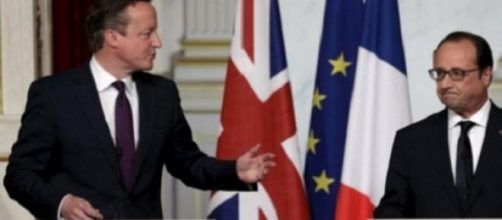David Cameron returned from a 48 hour European Union reform tour of The Hague, Berlin, Paris and Warsaw last weekend to intensified pressure from peers in the Conservative Party. It was claimed that he was not firm enough in negotiations on the mainland over EU reforms for the United Kingdom intended to avoid a full scale referendum advocated by the Tory Government in their election manifesto.
Most notable among his detractors were Dr Liam Fox, former defence secretary before the Werrity Scandal, and David Davis, senior Tory and former challenger for the Tory party leadership against Cameron in 2005.
Prior to Cameron's return from his tour of European capitals, Fox had stated the Prime Minister required time for renegotiations for a "frank and unfettered" debate. "The British people must not be bounced into the most important constitutional moment in a generation."
However, upon hearing a report on Cameron's tour, Fox was quoted as saying "there will be those who will be urging the prime minister to negotiate what is readily achievable rather than attempt a fundamental reform. I think he should attempt a once-in-a-generation reform on sovereignty." Fox's comments come on the heels of David Davis who made similar statements exerting pressure on the prime minister to do more.
Davis stated "he has made the case in the past for some pretty strong reforms, including the so-called red card, which I read to mean a parliamentary opt-out or veto.
"If we don't get that, a large number of people who would otherwise vote to stay in the union would vote to leave." Other senior Conservative Party figures have already made their views known with Boris Johnson and Kenneth Clarke calling for an EU referendum to be held a year early.
The added intensity to the rhetoric around the debate comes as Labour Party leader Harriet Harman said that Labour would not stand in the way of an EU referendum, and the debate around a British Bill of Rights in replacement of the European Convention on Human Rights escalated as an envoy of the United Nation's waded into the debate with other academics.
UN Special Rapporteur on the rights of migrants, François Crépeau, stated the importance of the ECHR by bringing up its origin, stating "we had discovered the majority, parliamentarian electoral democracies were actually capable of making errors, of violating the rights of huge categories of population and we did not want that anymore." The Justice Minister Dominic Raab stated the comparison was "ignorant and offensive", while Conservative MP Mike Freer claimed the UN might be a "semi-retirement home for loony tunes."
While the European Court of Human Rights (not to be confused with the convention it oversees the application of) is a separate body pre-dating the EU, as a result of that the court and convention has played a massive role in shaping constitutional rights of citizens over the evolution of the EU, so while it is a separate organisation, it is understandably difficult to exclude as a separate topic when debating sovereignty in the context of the Union.
The Conservative government has been warned against losing control of the debate on sovereignty to populism and nationalism, and while the Conservative party has maintained a victory in being elected on their manifesto for renegotiating sovereignty with the EU, as the debate intensifies he must keep in check the division's within the Conservative party on the issues key to their mandate.

